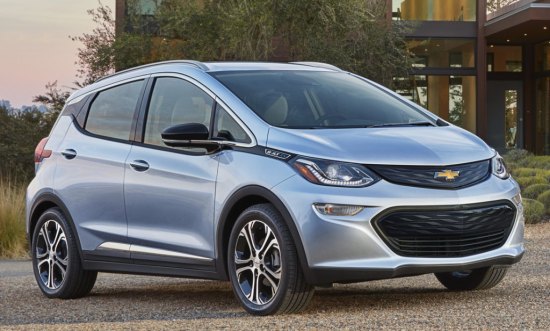Vehicle emissions standards are not a sexy cocktail party conversation topic these days, but they could be soon. Over the coming months and years, Connecticut residents will learn more and more about vehicle emissions standards. Why?
Special provisions in the Clean Air Act allow states to either follow the federal requirements or adopt California’s vehicle emission regulations. In 2012, California adopted its most recent regulations, requiring that 15 percent of new vehicle sales in 2025 be zero-emission vehicles (ZEVs).
In October of 2013, Connecticut joined eight other states in adopting the California ZEV Mandate: Maine, Maryland, Massachusetts, New Jersey, New York, Oregon, Rhode Island, and Vermont. Today, these 10 states have become known as the ZEV States.
What has driven all of this?
- While Federal Emissions rules have not change, the Federal Government did grant California special provisions under section 209 of the Clean Air Act. Other states are allowed to adapt California’s rules, but they cannot create their own standards according to Section 177 of the Clean Air Act.
- In an effort to maintain Federal Highway funding, these 10 states signed onto the more stringent California emissions standards in an effort to improve local air quality and reduce the emissions that have been contributing to climate change.
- The ZEV madate is now law. The challenge now becomes how to impact consumer behavior to put more zero-emission vehicles on the road.
What does this mean for Connecticut drivers? First and foremost, we will see a wide range of new forms of vehicle propulsion over the coming decade. The law says that 15% of vehicle sales must be zero-emission by 2025. That’s less than a decade away. And today, zero-emission vehicles make up less than 1% of the vehicles sold. Various auto magazines have written about hos this mandate may effect consumer choice, including this article from Edmunds. In coming years, CT consumers will still have vehicle choice, but there will be pressure for the state and vehicle manufacturers to begin rapidly changing consumer preferences.
Exactly how do we begin creating momentum to change consumer preferences? Vehicles that can operate by producing zero emissions will help boost air quality and in turn improve our quality of life. Those consumers who choose to adapt early by purchasing or leasing a Zero Emission Vehicle will likely be rewarded with significant incentives from Manufacturers, the state and also auto dealers. Driving a zero-emission vehicle will prove to be a financially rewarding experience.
The ZEV mandate creates a win-win opportunity for consumers – but will it last?

Here in Connecticut, the CHEAPR (short for Connecticut Hydrogen and Electric Automobile Purchase Rebate) program is currently in a pilot phase. Early funding for this incentive has come from a combination of sources including DEEP, the Connecticut Department of Energy and Environment Protection, Eversource, the Center for Sustainable Energy and the Connecticut Automobile Retailers Association. This rebate program offers exceptional savings on the purchase or lease of a qualifying vehicle to any licensed Connecticut driver.
How long the current CHEAPR program will last is anyone’s guess, but if one looks to the state of California where the ZEV rules originated, a look at that state’s most recent EV rebate and incentive program may hold some clues. After several years of offering rebates and incentives on any eligible vehicle to all California residents, the new rules phase out these benefits as income rises. The LA Times reports on how EV rebates have increased for lower-income consumers while they have vanished for higher-income consumers.
Here in Connecticut, the adaption of a rebate or incentive program similar to the new one in California would have an immediate adverse effect on Fairfield County residents. With higher incomes than the state average, Fairfield County consumers would loose. While we would strongly oppose any such change, let this post serve as a first warning – if you want to take advantage of the incredible savings available, do it soon before the opportunity is gone.
If you are considering a Zero Emission Vehicle, especially a plug-in Electric vehicle, check out Five Reasons Electric Vehicle Shoppers should visit Karl Chevrolet in New Canaan, CT. Learn if a Chevy Volt extended range Electric Vehicle or affordable Chevy Bolt EV might be the perfect choice for you or your family.

